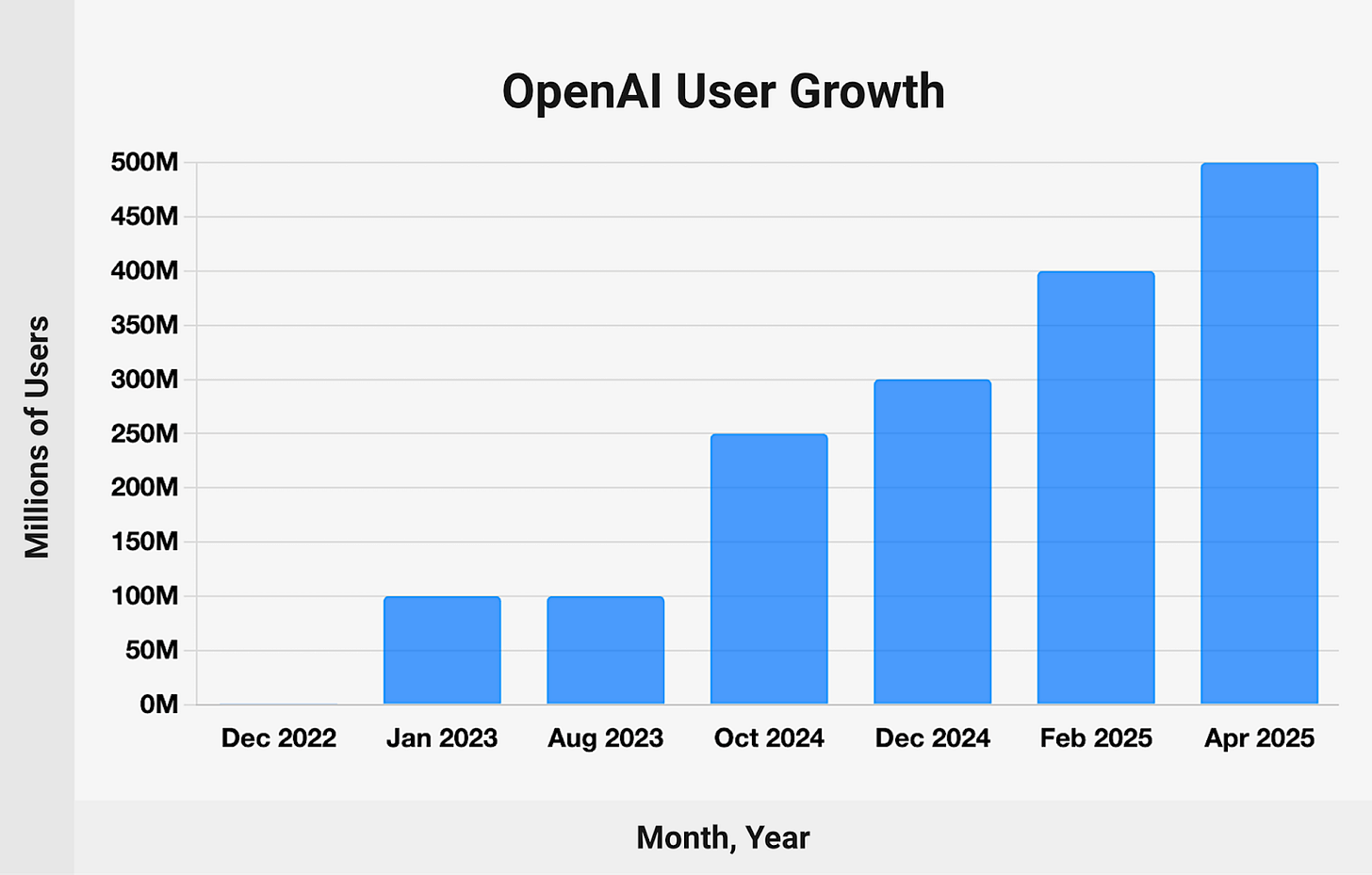The Thiel-Andreessen Axis
on hypergrowth
Peter Thiel’s formative investment was Facebook. His worldview is shaped around a cutthroat market with winner-take-all incentives.
Marc Andreessen’s formative founding was Netscape. His worldview is shaped around timing hypergrowth in eras with fast technological change, high volatility, and high upside.
In the AI era, whose world are we living in?
In 2022, it seemed like AI training would be the monopoly. Massive training runs would create insurmountable barriers for startups. In the next three years, open source flourished and all labs hit diminishing returns. The technology monopoly now appears to only be a memory.
In 2024, it appeared like curated fine-tuning data would be the monopoly. But like with pre-trained models, data appears to be an anti-monopoly. Data is becoming commoditized as providers boomed. Business legibility data is an anti-monopoly - the more data you collect, the easier it is for new companies to collect the same data. And on top of it all, model distillation is a gray area technique that could let any company catch up by curating outputs from their competitors.
So Andreessen is primed to win, right?
On the other hand, the AI incumbents have not stagnated. They’ve not become bloated organizations plagued by the innovator’s dilemma. The steelman for the monopoly thesis is OpenAI as a company — as collections of talent and connections — has continued to adapt as well as any startup.
OpenAI has a distribution advantage in its almost half billion users. Sam is a stellar dealmaker. And OpenAI is still a dynamic company that can respond to new market opportunities with better execution than startups. OpenAI has a decent chance to outcompete any single vertical — take Perplexity for search, Cognition for software agents, or Cursor for code. However, in order to compete with all AI verticals, OpenAI would need to become a bureaucratic Goliath that would make Google look lean and efficient.
Thiel famously invests in exceptional founders — people like Sam Altman who were born ready for hypercompetition. One argument for the monopoly thesis is that despite everything else, people — founders and employees — are the monopoly. After all, OpenAI is nothing without its people.
So, is it Thiel’s century for the taking?
This is a brief demonstration of an alternating path you can walk down for any promising company or industry.
By now, I hope you have realized that Thiel and Andreessen are complements, not competitors. The Thiel-Andreessen Axis is more like the Thiel-Andreessen frontier. The ideal point on the Thiel-Andreessen frontier fluctuates by time, space, and product. It even fluctuates within one company.
The only thing that’s fixed is that you should be exploring the Thiel-Andreessen frontier, and you should be exploring it yesterday. □




AI doesn't have a network effect like social networks. It barely even has vendor-lock-in since the AIs themselves are good at transferring interfaces.
So, Andreessen is going to win this one.
I'm not sure if data is really becoming commoditized... perhaps data for training the base model is becoming commoditized. But data for these vertical agents doesn't seem to be. Distillation doesn't really help me if I'm trying to make a Claude Code competitor. And you can see the companies are acting defensively around this data, for example see Anthropic cutting off Windsurf from its API.
I suspect the software engineering vertical is just a bit ahead of other verticals and soon we'll see more valuable agents in other verticals as well, with similar dynamics, where data specific to that vertical is particularly valuable.